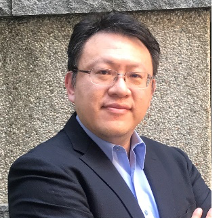ECE Seminar
Challenges in Circuit-Device Interaction of Compute-in-Memory for AI Chips
This event is free and open to the publicAdd to Google Calendar

Abstract:
Compute-in-memory (CIM) is a promising candidate to breaking through the so-called memory wall bottleneck and improve the energy efficiency of AI edge devices. This talks outlines the background, trends, and challenges involved in the further development of embedded CIM macros using SRAM, ReRAM, STT-MRAM and PCM devices. This short course also reviews recent silicon-proven embedded volatile and nonvolatile CIM macros designed for multiplication-accumulation (MAC) operations used in deep learning based AI chips.
Bio:
Meng-Fan Chang is currently a Distinguished Professor at National Tsing Hua University (NTHU) and a Director of Corporate Research at TSMC. Prior to 2006, Dr. Chang worked in industry for over 10 years. This included the design of memory circuits and products at Mentor Graphics (NJ, US), TSMC, and IPLib in Taiwan. His research interests include circuit design for volatile and nonvolatile memory, ultra-low-voltage systems, 3D-memory, circuit-device interactions, spintronic circuits, memory-based security circuits, memristor logics for neuromorphic computing, and compute-in-memory for artificial intelligence.
Dr. Chang has been serving as an associate editor for IEEE JSSC, IEEE TVLSI, IEEE TCAS-I, and IEEE TCAD. He has also been serving on the Executive Committee for IEDM, as well as Subcommittee Chairs for ISSCC, IEDM, DAC, ISCAS, VLSI-DAT, and ASP-DAC. He was a Distinguished Lecturer for IEEE Solid-State Circuits Society (SSCS) and Circuits and Systems Society (CASS) as well as the Chair of the Nano-Giga technical committee of CASS. He has been serving as Program Director for the Micro-Electronics Program at the Ministry of Science and Technology (MOST) of Taiwan government as well as Chair of the IEEE Taipei Section, Associate Executive Director for Taiwan’s National Program of Intelligent Electronics (NPIE), and NPIE bridge program. He has been the recipient of several prestigious national-level awards in Taiwan, including Outstanding Research Awards of MOST-Taiwan. Dr. Chang is a Fellow of the IEEE.
 MENU
MENU 
